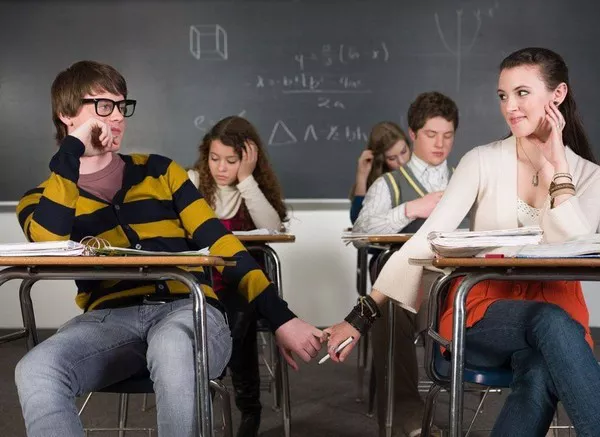Post-Traumatic Stress Disorder (PTSD) is a mental health condition that is often associated with combat veterans, but it can affect anyone who has experienced trauma, including those who have been through accidents, physical abuse, natural disasters, or any other form of deeply distressing experience. PTSD can manifest in various ways, including flashbacks, nightmares, anxiety, hypervigilance, and emotional numbness. While much of the focus has been on the impact PTSD has on the individual suffering from it, the condition can also significantly affect relationships, especially friendships.
A “PTSD friendship” refers to the unique dynamics that emerge when one or both friends are affected by PTSD. These relationships can be incredibly rewarding but also challenging, as trauma survivors and their friends navigate the complexities of trauma, healing, and emotional support. Understanding what PTSD friendship entails can help both individuals affected by trauma and their friends build a more supportive and compassionate relationship.
In this article, we will explore what PTSD friendship means, the psychological mechanisms at play, how PTSD affects friendships, and the steps that both individuals with PTSD and their friends can take to foster a healthy, understanding, and supportive relationship.
The Psychological Impact of PTSD on Relationships
PTSD doesn’t only affect the person who has experienced trauma; it can also have profound effects on their relationships with family, friends, and even colleagues. When a friend suffers from PTSD, their behavior, emotional responses, and even physical presence can be altered in ways that might be difficult for others to understand. The emotional toll of PTSD can lead to misunderstandings, conflicts, and even distancing in friendships.
For someone with PTSD, it may be hard to manage day-to-day interactions, particularly in social contexts. They may experience irritability, withdrawal, trust issues, or feelings of guilt or shame, which can make it difficult to maintain normal interactions with close friends. On the other hand, the friend of someone with PTSD may feel helpless or confused, not knowing how to provide adequate support or understanding.
Key symptoms of PTSD that impact friendships include:
Hypervigilance: This heightened state of alertness may cause the individual to react excessively to minor stimuli, be easily startled, or feel unsafe in seemingly benign situations. This could make social gatherings uncomfortable or overwhelming.
Emotional Numbness: People with PTSD may become emotionally detached, pushing others away even though they may still care about them. This can make the friendship feel one-sided or distant.
Trust Issues: PTSD often results in difficulty trusting others, which can impact even close relationships. The individual with PTSD may fear that others will betray or abandon them, leading to a lack of emotional openness.
Intrusive Thoughts and Flashbacks: Trauma survivors may experience flashbacks or intrusive memories of their traumatic event. This may cause them to dissociate from the present moment, making it hard to engage in conversations or social situations.
Irritability and Anger: Increased irritability or angry outbursts may occur, particularly in response to stressors that feel threatening. This can be difficult for friends to navigate, as they may not always understand the triggers for these emotional reactions.
How PTSD Affects Friendships
A friendship affected by PTSD may go through periods of tension, uncertainty, or distance. These shifts occur as both parties struggle with the demands of supporting the trauma survivor while also trying to maintain a healthy, reciprocal relationship. However, when managed thoughtfully, PTSD friendships can thrive, offering the trauma survivor a safe space for healing and emotional support.
Changes in Communication
Communication in PTSD friendships can be complicated by the trauma survivor’s emotional responses. Friends may feel as if they cannot speak freely or might avoid certain topics because they are afraid of triggering a PTSD episode. The person with PTSD, in turn, may find it difficult to communicate their needs clearly or may withdraw from conversations altogether.
Friendship Fatigue
For friends who are constantly trying to support someone with PTSD, there may be times when they feel emotionally drained or overwhelmed by the demands of being a caregiver or confidant. PTSD can be all-consuming, and the friend may feel like they are constantly walking on eggshells, unsure of how to help without saying the wrong thing. This fatigue can cause frustration and resentment, especially if the friendship feels unbalanced.
The Impact of Isolation
One of the most common reactions of individuals with PTSD is withdrawal from social interactions. Friends may feel rejected or abandoned as the person with PTSD retreats into isolation. The trauma survivor may distance themselves because of overwhelming emotions, feelings of shame, or a belief that others won’t understand their experience. This isolation can create a rift between friends and result in feelings of neglect or loneliness for both parties.
Building a Strong PTSD Friendship: Steps for Both Friends and Trauma Survivors
While PTSD can create significant challenges in friendships, it is possible to navigate these difficulties and build a stronger bond over time. Both the person with PTSD and their friend can take active steps to ensure the friendship remains healthy, understanding, and supportive. Here are some strategies for fostering a supportive PTSD friendship:
For the Person with PTSD:
Be Open About Your Struggles: It can be difficult to discuss your experiences, but communicating openly with your friend about your PTSD and how it affects you can help them understand your behavior and emotional responses. Being honest allows them to be more empathetic and provides them with a roadmap for how to support you.
Set Boundaries: Establishing boundaries is important in any friendship, but especially in a PTSD friendship. You might need to set limits on how much emotional support you can give or let your friend know when you’re feeling overwhelmed. Boundaries help protect both individuals from emotional burnout.
Acknowledge Your Friend’s Efforts: PTSD can make you focus on your own pain and challenges, but it’s important to recognize and appreciate the efforts your friend is making to support you. Expressing gratitude and acknowledging their role in your healing process can strengthen your bond.
Seek Professional Help: While friends are vital for emotional support, it’s also crucial for the individual with PTSD to seek professional therapy. A therapist can provide tools and strategies for coping with PTSD symptoms, and by addressing these issues in a therapeutic environment, the individual can avoid relying too heavily on friends for emotional support.
For the Friend:
Be Patient and Compassionate: PTSD can cause your friend to behave in ways that are difficult to understand. Whether they withdraw, seem distant, or react angrily, try to approach them with patience and compassion. Recognize that these behaviors are often symptoms of the trauma, not personal attacks on you.
Offer Consistent Support Without Pressuring: The person with PTSD may not always be ready to talk or share, and they might push you away at times. Avoid taking this personally. Let them know that you are there for them, without pressuring them to open up or participate in social events if they are not ready.
Educate Yourself About PTSD: Understanding the condition can help you avoid misunderstandings and feel more equipped to support your friend. Learning about the symptoms of PTSD, common triggers, and ways to respond can make you a more effective and empathetic friend.
Respect Their Boundaries: Everyone with PTSD has different coping mechanisms and comfort zones. If your friend sets a boundary, respect it. This may involve giving them space, limiting certain types of conversation, or being sensitive to certain topics that may be triggering.
Encourage Healthy Coping Mechanisms: While it’s important not to push your friend to “get over it,” you can gently encourage them to engage in healthy coping mechanisms like physical exercise, mindfulness practices, or seeking therapy. Supporting their efforts to take care of their mental health can reinforce their healing process.
Conclusion
A PTSD friendship requires both individuals to navigate the complexities of trauma and healing. For those living with PTSD, understanding the condition and its effects on relationships can help reduce feelings of guilt or shame. For friends, offering support while setting healthy boundaries and recognizing the challenges of PTSD can help ensure the friendship remains strong and balanced.
While PTSD can create emotional strain and moments of distance, it can also strengthen the bond between friends when approached with empathy, understanding, and care. A PTSD friendship, when nurtured properly, can become a source of healing and resilience, with both individuals growing and learning from the experience. With patience, communication, and mutual respect, PTSD friendships can endure, offering support in times of crisis and connection in the face of trauma.
Related topics:



























